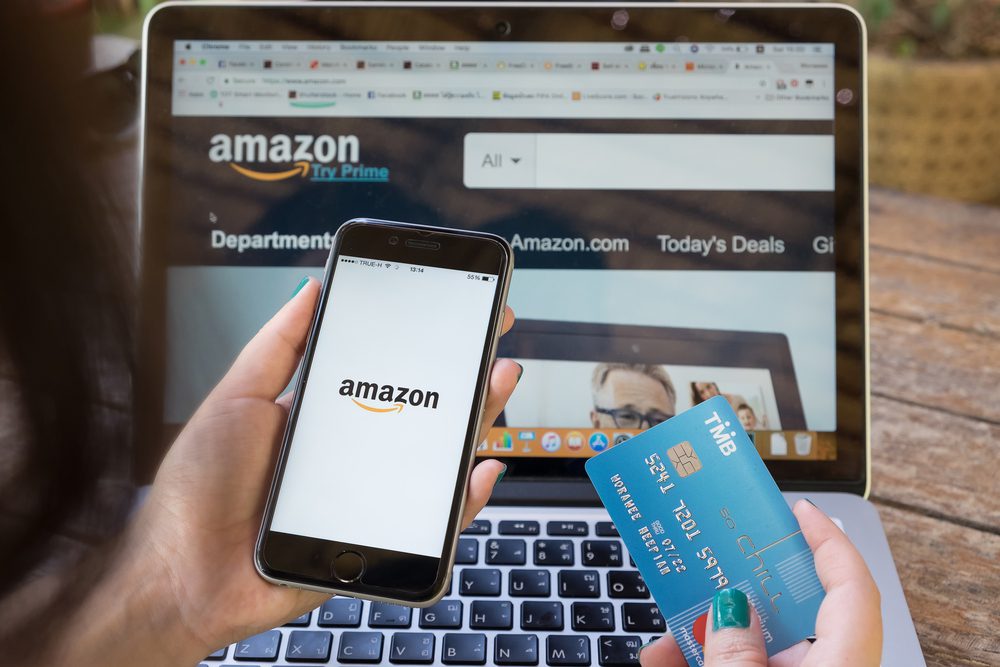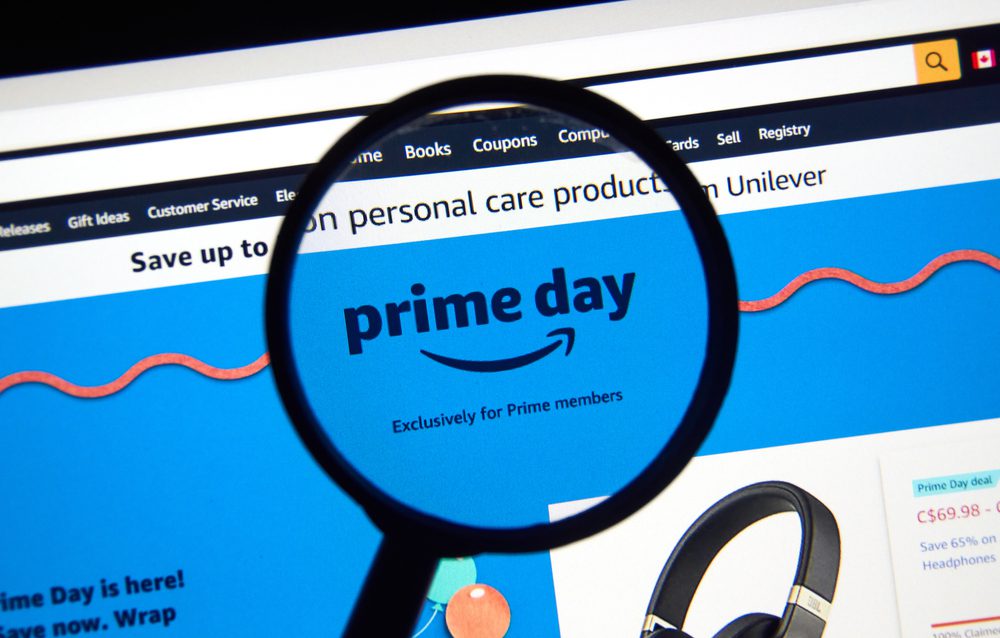
…How often do you shop from Amazon?
We think Amazon is one of the most significant retailers in the world, and to be honest, they’re one of the planet’s giants, which means that they have clients all over the world and really know how to make their customers happy.
They have incredible products for all types of budgets, but the downside is that there can be quite a few scammers out there. For instance, an Ohio man’s personal account was in jeopardy, so when Amazon “Security” called to warn him, he took immediate action. As directed by the caller, he created a new Amazon account and linked it to his bank details.

The caller pretended to be from the retailer’s security team, but they were really fraudsters. Hours after the conversation, more than $100,000 was stolen from the man’s bank account.
The huge number of scammers out there is crazy, which is exactly why we wanted to inform our readers on how to stay away from con artists and their mischievous schemes.
Amazon fraud is a constant concern now that online shopping and app purchases are commonplace. If you want to know how to safeguard your loved ones and your assets against crooks, keep reading.
In today’s article, you’ll find out how the most typical and current Amazon scams work, what warning signs to look out for, and what steps you can take to protect your account. Ready? Let’s begin!

What actually is an Amazon scam?
Scammers that pretend to be working for the retailer are committing impersonation fraud if they try to get you to provide personal information or transfer them money from your bank account. The giant retailer is now the most copied brand in the world, which shows that these scams are becoming more common.
Unfortunately, opportunistic fraudsters take advantage of the fact that millions of people use the merchant’s website and app every day. Let’s take a look at some of the various ways customers might fall victim to con artists:
Conspirators pose as Amazon employees and contact victims by email, phone, text, and even social networking platforms to get sensitive information. However, you put yourself in danger of identity theft if you click on any links or supply any information, so don’t do it.

If you suspect that those who contact you are con artists, the best way to deal with this is to call the client service number that’s mentioned on the retailer’s website and tell them about your experience.
Scammers pretending to be from the brand’s customer service department ask for personal information like login credentials by email or remote desktop connection. They also make fake websites that look like Amazon product pages or sign-up pages for Amazon Prime in an attempt to get you to enter sensitive information.
You probably know that sellers who offer fake or stolen goods on their sites are committing fraud. Con artists could take advantage of the fact that you know and trust Amazon in a number of ways to steal from you. Staying safe on this platform requires awareness of current scams and the ability to recognize them before it’s too late.

1. They ask you for personal info
As we’ve previously said, con artists are more likely to contact you and ask for several details regarding your personal information. One woman was called by someone who pretended to be from the staff and told her there was a problem with the system and there were some charges of $500 to her account. Fortunately, the woman hung up on the con artists when they requested her SSN. Some people aren’t that lucky, however.
Here’s what the scammers typically do:
- They call you from an unidentified number and say that they work for the retailer in customer service or security;
- The scammers tell you that there’s a problem with your account, order, or finances in general;
- They lie to you, saying that they want to fix the problem, but they need a little help from you. So they ask for your financial information, like your credit card number.

But here’s what you should know:
The staff will never contact you through email, text, or phone calls to ask for sensitive information. Keep in mind that you should never give out your Amazon account’s password or 2-factor authentication (2FA) tokens to anybody, no matter how persuasive they might seem.
Look for a legitimate phone number and tell them what happened so they can help you with your problems. Long story short, don’t give your sensitive information to anyone, especially if you’re not sure about their identity!
…This is important: you can find the 2nd type of scheme on the next page!

2. They say you have a refund
Con artists masquerading as Amazon employees are behind a widespread scheme in which they falsely claim you are entitled to a refund due to incorrect billing. There was a couple from California who sadly lost about $700,000 when they sent money to the “Amazon Refund Recovery Center” under false pretenses.
Here’s how to spot it:
- You receive unwanted text messages or emails that tell you to contact Amazon about suspicious activity on your account or problems with a recent purchase;
- You might get scared, so you decide call the number they mention to you. NO! A fake Amazon employee answers the phone and claims you were overcharged or the victim of fraud and you’re entitled to a refund. The person who calls will need remote access to your computer to fix the problem.
If you give them what they want, they might use your personal information to steal your money or trick you into visiting a fake website where you’ll be forced to make purchases.
How to Recognize a Scam:
Please do not follow any instructions in an email or conversation from someone pretending to be from Amazon, especially if it concerns a refund. Log in to your account using the website or the app instead to see your purchase history.

3. Ask for payment off-platform
Swindlers often use Amazon to deceive customers into sending money through Western Union and similar wire transfer services or mobile payment applications like Zelle and Venmo.
Using these services will exclude you from the retailer’s A-to-Z guarantee since they don’t provide buyer protection. Therefore, if you fall victim to a scam, you’ll be out of luck in terms of recovering your funds.
How the schemes work:
- In order to trick people into thinking that they’re indeed working for Amazon, scammers fabricate a legitimate-looking Amazon product listing and post it online. They could even use fabricated testimonials to boost credibility;
- The fraudster approaches you when you try to buy the goods and provides a link to a 3rd-party payment processor, such as Cash App or Western Union;
- After that, your money (and maybe credit card details) will be sent to the fraudster as soon as you click that link.
How to recognize an Amazon fraud attempt (and what to do about it):
Authentic Amazon merchants will never ask customers to pay using a method other than their website. It should raise red flags if the vendor insists on being paid using a service like Zelle, Western Union, PayPal, or MoneyGram. Don’t send any money, and cut all contact with the vendor.

4. The mystery box method
Sketchy sellers on Amazon sometimes post “mystery box” ads that seem too good to be true because they promise substantial discounts on high-priced goods. However, the vast majority of the time, you will be duped and risk paying tons of money in vain.
A man from YouTube wanted to try this method out and spent $110 for a “mystery package” that might have included a computer graphics card worth more than $2,500. Instead, he got a 2nd-hand graphics card from 2007 that was physically broken and barely worked with.
Here’s how those scams work:
- Con artists advertise “mystery boxes” that they say contain items worth a lot more than the price they’re asking;
- There are usually many price points, with the promise that if you pay more, you have “more chances” of obtaining the desirable item;
- In reality, however, what is delivered the vast majority of the time is subpar, damaged, or antiquated. Since you intentionally purchased the “mystery package,” Amazon will not provide a refund.
Here’s what to do:
Beware of any advertisement for a “mystery package”, because you’ll end up wasting a lot of money. Don’t forget that you shouldn’t put too much stock in the reviews on Amazon, even if they seem genuine. If you want to discover what other customers think, you can read reviews of merchants on sites like Trustpilot and Reddit.

5. You receive unordered packages
Can you recall a time when Amazon surprised you with a package? Probably not, because it didn’t happen. It’s possible that you’re taking part in a brushing scam.
There was a man who stated that she’s gotten over a hundred products from Amazon since August 2021 and the worst part is that he didn’t order any of those. While the promise of free stuff might appear innocent at 1st, it really might be a clue that your personal information is in danger.
Here’s how those Amazon scams work:
- Sellers on the website who aren’t affiliated with the company sometimes deliver packages to customers without including a return address. Items like screen covers and Bluetooth speakers are typical fillers for these boxes, so pay attention to that;
- By writing fake reviews in your name, the sellers use these fake purchases to boost their seller ratings and, in turn, their ability to get new customers;
- These shady online shops might try to get more customers by taking advantage of their good reputation.
Indicators that it’s an Amazon fraud (and what to do about it):
Scammers might commit other forms of identity theft with your address and the ability to post reviews under your name. If you suspect that your Amazon account has been hacked, you should immediately contact the staff so that you can report the event and have any duplicate accounts deleted. You should also change the passwords to your Amazon and other important accounts, like email and financial ones.
…If you want to read more from us, check out this article: Stimulus Checks 2023: Which States Are Still Sending Payments?













One Response
I am interested to know about this add